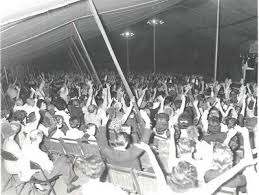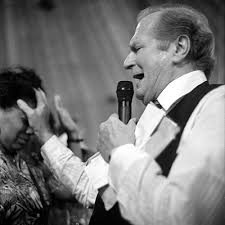Nearsighted Singers, Your Time Has Come
by Con Chapman
Nearsightedness on the rise—Headline, The Boston Globe
When I was eleven years old, fate dealt me a cruel blow that has hindered my musical career ever since. As I stared at the blackboard in sixth grade, my teacher noticed that I was squinting—I had been struck with nearsightedness.
“We may have to send you to the Fulton School for Nearsighted Boys,” she said with an anguished tone, “or perhaps you could make a living on the streets, singing the blues.”
The town where I grew up—Sedalia, Missouri—was the cradle of one genre of African-American music—ragtime. Scott Joplin wrote his monster hit “Maple Leaf Rag” while playing in the saloons and whorehouses that lined Main Street when Sedalia was the last stop on the Chisolm Trail, the end point for Texas cattle to be put on trains headed for the Chicago stockyards.

Glasses help you suffer, so you can sing the blues.
I took her advice and headed down to the corner of Main and Ohio, a minor-league version of Kansas City's 18th and Vine, with my first guitar, a pair of dark glasses, one of my dad's hats to receive the monetary tributes that were sure to flow my way, and a cardboard sign that read “Nearsighted Lemon Meringue”—my nomme de blues. I launched into “Bully of the Town,” a traditional song of a roughneck on the St. Louis riverfront, and waited for the bills to start falling, like leaves off a dead president tree.

Blind Lemon Jefferson: I couldn't compare.
An old black man in overalls with rags on his head known locally as “Bo Peep” made his way up Ohio Street from the railroad tracks that separated the black side of town from the white. After listening for a few moments, he shook his head in disgust. “Boy, you can't play them blues.”
“Why not?” I asked.
“‘Cause you ain't blind,” he said. “You just nearsighted.”
He snorted a contemptuous laugh and walked off to get a 50-pound block for his ice box, leaving me crushed—my dreams of blues stardom shattered.

Original Five Blind Boys of Alabama
In my despair, I turned to religion. I organized four of my nearsighted friends into a gospel quintet, The Original Five Nearsighted Boys of Central Missouri. We worked up a repertoire of traditional favorites—”Precious Lord, Take My Hand,” “What a Fellowship,” “How I Got Over”, etc., and were ready to play the revival that set up shop every summer on the football practice field. We walked into the tent with white canes and launched into “Ezekiel Saw the Wheel” only to be met not with ecstatic shouts of joy, but with sniggers behind cupped hands.

“Hallelujah those boys are bad!”
The itinerant preacher, a man who could shift from oil-slick sermonizing to full-throated glossolalia in the switch of a Missouri mule's tail, assumed an arms-akimbo stance, his face plastered over with a contemptuous sneer. “Well what have we here?” he said, his voice dripping with sarcasm.

I wiped off some of the sarcasm that had dripped on my crisp white shirt and spoke up. “We're here to testify,” I said.
“You ain't testifyin' tonight, boy,” he said with finality. “You need to get you to an optician—and get a stronger prescription.” The congregation broke out in laughter and we ran from the tent, psychological wedgies between our legs.
And so I grew up and am now nearing my golden years, having never realized my dream—until yesterday, when I read in the Boston Globe that nearsightedness is on the rise!

Bobby “Blue” Bland
That's right—the airwaves of America will soon be filled with the sounds of nearsighted soul, that curious mixture of pain and catharsis, seasoned with a half teaspoon of marjoram and a dash of cumin. The plaintive notes of ”Blind Man on the corner . . . crying out the blues” by Bobby “Blue” Bland will be replaced by the sound of Myopia Blues, along the following lines:

Nearsighted man, chronic napper,
Looks round for his glasses with messy hair.
Can't find ‘em—he needs The Clapper,
Or he'll fall down the basement stairs.
From the forthcoming “Imitations of Myself.”
|
4
favs |
1452 views
7 comments |
773 words
All rights reserved. |
Author's Note
The author has not attached a note to this story.
Other stories by Con Chapman
Tags
This story has no tags.
Lord, I KNOW I've been changed!
I'm bad, and not in a good way.
I had to wait til I was 40 for glasses. No wonder I never learned to sing the blues.
Good piece, Con.
Hooooooooly crap.
Looks like ah done missed mah callin'.
Ah coulda been somebody. Who knew?
My wife is farsighted, so it works out.
Very funny. This phrase is beautiful, "oil-slick sermonizing to full-throated glossolalia in the switch of a Missouri mule's tail."
H.L. Mencken has some funny bits about tent revivals. He ranked them like movie ratings based on how ecstatic the worshippers were.